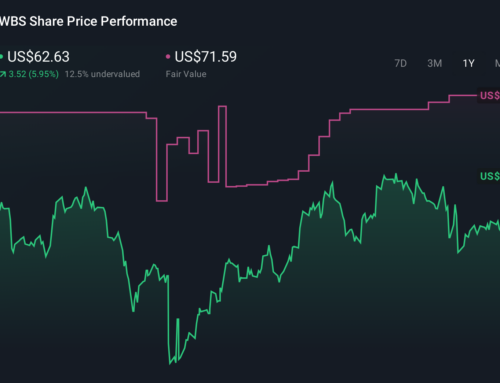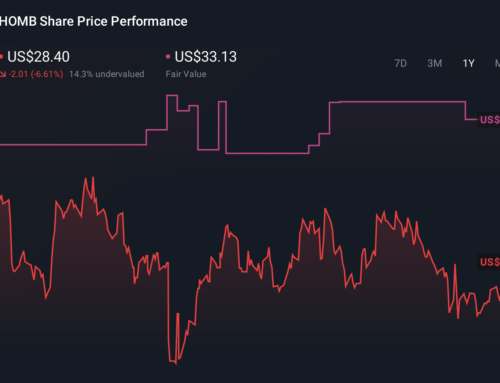‘House of David’ Bosses Unpack the Battle of David and Goliath in the Finale and Tease Sea
April 3, 2025
SPOILER ALERT: This story contains spoilers for the Season 1 finale of “House of David,” now streaming on Prime Video.
When your story is not only thousands of years old but also one of the most well-known tales of all time, it’s not much of a spoiler to reveal that in the first season finale of Amazon’s Prime Video’s “House of David,”history was not rewritten. In the final moments, young sheep herder and musician David (Michael Iskander) threw one well-aimed rock with his sling to strike the gargantuan Goliath (Martyn Ford) in the head, ending his life.

Courtesy of Amazon Prime Video
However, knowing the outcome of that event doesn’t lessen the impact of that moment in the April 3 finale, since following David’s Bible-inspired story this season has been a journey unto itself. Early on, the earnest young shepherd with no leadership or battle skills was unexpectedly anointed the future King of Israel by Samuel (Stephen Lang), who was following the word of God. Then, using his talents playing the lyre and singing psalms, David grew to be a supportive comfort to the possibly mad King Saul (Ali Suliman) as well as begin a romance with Saul’s daughter, Michal (Indy Lewis). Both of these relationships played integral roles in giving David the permission and the confidence to bravely step up to battle the vengeful 11-foot-tall giant.
Was the iconic fight always meant for the final episode? How significant are the visions experienced throughout the season by several characters, including David? And what’s next for the recently renewed series that had 22 million viewers watching the premiere episode in its first 17 days? To answer these questions and more, Variety talked with “House of David” executive producers Jon Erwin and Jon Gunn, who co-directed the finale together.
Popular on Variety
Jon Gunn: A lot of that, for sure. Everybody in the world knows about David and Goliath, and whether you’re a religious or Bible-reading person or not, this is a piece of history and an epic story. And there’s something about this Old Testament legendary hero’s journey that transcends being religious or not religious. So that probably speaks to why so many people are deciding to watch, even if they wouldn’t normally.
Jon Erwin: I’ve described it as David is the first hero’s journey. It really is the well by which many other heroes’ journeys are drawn, at least in part. There’s just an incredible relatability to the story and its themes, even if you have no real context for the Bible itself.
Gunn: We did play around with the first episode quite a lot. It wasn’t originally designed to include David and Goliath flashes, but it felt like a good promise to make at the head of the season, knowing that we were going to end the season with David and Goliath.
Erwin: The question was always where to put that Goliath moment. When we began to design the first season, I really got a lot of help from a lot of great friends like “The Chosen’s” Dallas Jenkins and Ryan Swanson, his lead writer, who is a structural genius. It became clear that Season 1 should be about this young boy chosen to be king in a nation that already had one and this collision course to fight this giant Goliath at the end of the season. Also, this absolute cliffhanger of: What happens now? David has killed the giant, but he has also triggered an absolute tidal wave from both sides of which he is in the middle of. It just seemed like a great place to leave the story and the character, and then come back with Season 2 and tell the rest of the story of this great battle.

Erwin: It actually is, at some point, the oversized chair bit. We looked and looked, and we couldn’t find any 11-foot-tall people, so we had to use some visual effects. Martyn is amazing at bringing Goliath to life. You really do empathize with him, and at least understand his character in a very unique way. And “House of David” really is a love letter to movies — like the original “Lord of the Rings: Fellowship of the Ring” — where they went out and really did it for real. We did things for real as much as we possibly could. That’s why we film in Greece, and the locations are just incredibly epic and we let the land do so much of the work.
With the giants, the idea was we want to do as much of this in camera as possible. I would say over half, if not more, of the Goliath shots are forced perspective, meaning whatever giant is on screen he’s just simply closer to the camera. It’s amazing how well that works, but that also allows you to have all of the elements in the scene for real. And then when we use visual effects, we use them sparingly.
Gunn: We almost never had a green screen on our set, so it was a lot about using the land and shooting things practically using force perspective, and then compositing and other techniques.
Erwin: We set up Doeg as a character that is an arms dealer to power, basically. He wants to be in relationship with anybody who could possibly be powerful, so he’s playing all sides and will continue to do that. There’s a very significant moment in Season 2 that is where this character is actually mentioned in the Bible. My vision was to portray a character that has friends everywhere and is a servant to power and plays all sides.
Gunn: He’s from Edom, and they’ve got a beef with the nation of Saul. You’ll learn more about Doeg as we move into Season 2. But he’s got personal reasons to not be pleased with the Empire of Saul, and yet he gains great power by being near Saul.
Erwin: The Bible talks about people who would see visions and have dreams or hear the voice of God in the case of Samuel. So how do you use visual poetry to illustrate these things? With David specifically, he’s having this vision reoccurring throughout the season that is really a way of God speaking to him on what his destiny and purpose is and what he’s supposed to do. That’s connected with this other character, Joshua, in the Bible before having the battle of Jericho — so that’s where we pulled that story.
In the instance of Saul and Jonathan, they’re having premonitions about how they’re going to die if Saul maintains this course of not being able to give up his throne. I always saw Saul through the lens of tragedy — that this was a good man, a powerful leader, a multi-decade leader. And that power corrupts, and he cannot let go of this thing that he’s no longer meant to steward with this throne. In that, it’s corrosive to him and it’s going to damage and destroy his entire family. It’s like they’re having premonitions and visions and flashbacks, but that spiritual world and the dream states that these characters have are very important to the show and that’s how we illustrate a divine connection that is in the Bible.
Gunn: This is a show about households and families, and we created this triangle of priorities where God, family and nation are the three tips of a triangle. And we’re always putting characters in positions where they have to choose one at the expense of the others. Ahinoam is a good woman who loves her family, and over the course of seeing what power does to the common person, the desire to hold on to it and the need often to compromise as a result.
She’s not someone who luxuriates in doing difficult things, but she is willing to do them when necessary, and the slippery slope of what you start to do with “maybe this life is less important than or more expendable than this one.” I don’t think of her at all as a villain, but ultimately into the next season, you’ll see that she fights very hard for what she believes she needs to preserve her family. It does lead her down some dark paths.
Gunn: That makes me really happy to hear you say that, because it was really hard to build a family for Goliath. When we talked about starting the show, I couldn’t wait to do the version of David and Goliath where we understand both of these people showing up at the battlefield and where they come from. And that one little line about his mother — I wasn’t sure if people were going to pick it up.
Erwin: You actually have empathy for Goliath. You’re rooting for David, but it draws you in in a way that I find unexpected. It’s not just some monologuing villain. You’re connected to both sides of the battle.

Erwin: Obviously, when David goes to slay this giant, you have a lot of text in the Bible. That’s one of the moments where the Bible does cover in detail this event, and so our job is to justify these events and to make them plausible and emotional — so we really did wrestle with a couple questions there. No. 1, why would Saul let this kid out onto the battlefield? Saul would have had to allow this. He’s the King. And Michael, who plays David, wanted to deliver that speech before Saul verbatim. It is word-for-word out of the Bible. What kind of conviction would Saul have had to see in this kid to justify letting him out on that battlefield unarmed?
Gunn: Remember, this was a kid who had been comforting him with his music and his voice, which is so compelling and powerful. And then to see this conviction that nobody else showed. There’s a spirit about David and, by the way, there’s a similar spirit about Michael, who has never been in front of a camera, but he has a passion and a drive that makes you go, “I think he can do this, actually.” The King, in a moment of lostness, against all odds, says, “Let that kid bring that spirit to the battle.” And that’s how we all feel about David in the show, and Michael. He’s gonna make this work.
Erwin: That’s we looked for when we cast Michael, that one word: conviction. When someone is just absolutely, passionately sure that this thing must happen, you want to follow those people. Those are the leaders that follow into battle. So David, because he carries the same anointing that Saul had, which, in our story, is like the Force in “Star Wars,” and there’s something that Saul recognizes about him.
The other question that a lot of people ask, Christians that watch the show, is, “Wait, was David afraid?” It doesn’t really read in the Bible itself that he was afraid, but I think that you would have been absolutely terrified having dramatized this situation, having looked at Martyn, who is 6 feat, 8 inches tall. It would have been a very, very, very scary thing to do. We also play that while he’s absolutely overcome by the spirit of God, and the kind of a righteous rage to right this great wrong — but he’s still terrified.
Gunn: Which is really humanizing. I think that was important to us to not make it seem magical. The people who rise up as heroes and people who follow their conviction even in their faith, if they have no fear at all, it’s not a goal to overcome. It’s not a great act, necessarily, of faith. We really liked leaning into the fact that it’s all right for him to be afraid and makes the move that much more heroic and more of an obedience.

Courtesy of Amazon Prime Video
Erwin: I thought it was an old-school classic movie kiss. That was a proper cinema moment.
Gunn: You know, we held off on that kiss for the whole season just to make it pay off.
Erwin: One of the great things I’ve loved about this project is the collaboration with Gunn. We co-directed the episode, and so often we were filming in this rock quarry in Greece, and we wanted that battle to take place at sunset. What that means is that you have about an hour every day of light that matches. So often we were directing something else, and Jon was anchoring the main unit, and as we would approach that time of the day, I would run down into the quarry and just chip away at it.
We filmed it over two weeks. For a week, we had the whole unit and we were filming the big moments and the big scenes and the battle charges, and then we went back for a week and we stayed in the area. And then every day, we would just go down there and chip away at the close-ups and the character work and some of the stuff that I love the most — like when Goliath falls.
Erwin: Only one time he had to do it.
Gunn: He did a perfect job. By the way, it’s not easy to fall face first with your hands limp and not cut yourself. We had a big mat set up for him, and we were like, “Dude, just do your best.” He’s got a helmet on that could have hit his forehead.
Erwin: One of the other things is that he’s not falling onto the ground. He’s actually on a platform that’s a foot and a half off the ground. And then there’s a bunch of dust on the mats. But even with all of the stunt accessories, we knew this was going to be painful for Martyn. I always had this vision of one of those gigantic trees just falling. We had three cameras on him, and we ran the cameras in slow motion. The fall happened. We checked it and I’m like, “Martyn, it’s great!”
Gunn: We pick up literally the very second we leave off from Season 1. The first episode of Season 2 will be in the entirety of that battle.
Erwin: In Season 2, David becomes the warrior, and learns to be careful what you wish for. Destiny comes at a cost. Fame and success are complex things to navigate, and as this character continues his rise, all those screws of intensity and drama tighten as the truth comes closer and closer to this character and a truth that threatens to unravel everything. Season 1 really does set up Season 2, and I think all the intention just heightens.
Gunn: We have a couple of new characters joining the family in Season 2, too, so that’s exciting.
Erwin: Yeah, I’ve plotted out the entire series. This is something that I’ve been dreaming of for decades. I very clearly know where I want this series to end. David’s life is really in three chapters. You have the origin story of David, the ascent and rise of this character. You have this middle portion, which is like Robin Hood, as this character is being chased around by King Saul. And then you have the great reign of King David, which is full of accomplishments and tragedy and everything in between. You put all three of those together and it really is an odyssey.
This whole story is an epic life lived, and not a perfect one. His accomplishments are as high as his failures are low, but he always found a way of finding his way back to God and finding his way back to the heart of the story. I would love nothing more to be able to tell the whole story of David. That would be incredible.
Erwin: Six seasons would be amazing. One thing I wanted to mention. When you think about David walking out on the field and challenging Goliath and Saul having to bet the farm on this kid, there’s something thematic that I’ve realized in the show. But also, the making of the show of seeing potential that other people don’t see, and actually betting the farm on it or empowering that potential rise in front of you.
We got to believe in Michael as a first-time actor. I remember when we saw his audition, but the only reason we got to do that was because Amazon believed in us. I remember Vernon Sanders [head of television, Amazon Studios), who I love, said after we did this deal. “You know, Jon, you’ve never really done television. Are you guys up for this?” So, allowing us to step onto our own battlefield and do this epic TV show, he really saw and believed in our potential, which allowed us then to see and believe in Michael’s potential. It’s a big part of the story, and the big part of how this show was made.
This interview has been edited and condensed.
Search
RECENT PRESS RELEASES
Related Post



